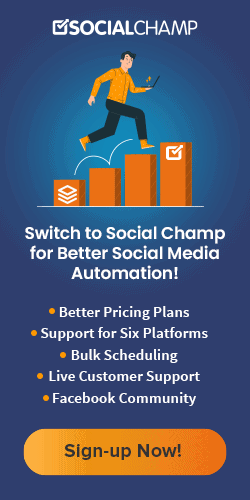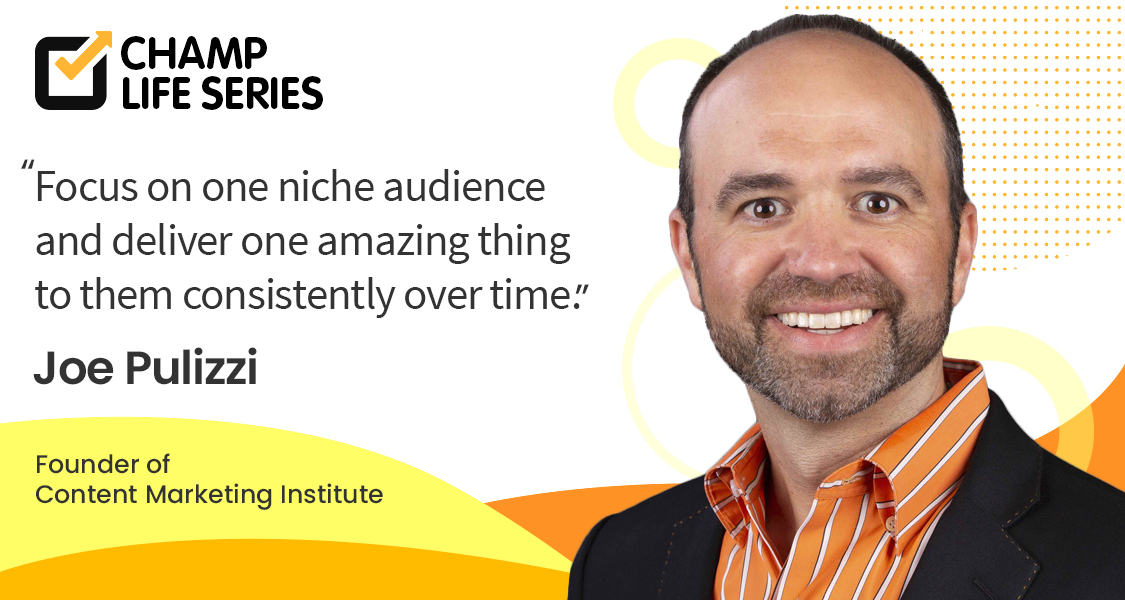You spend hours crafting the perfect post, hitting “publish” with all the excitement in the world, and then… nada.
Just a few likes from your co-workers and that one supportive friend.
It’s the digital equivalent of watching potential customers stroll right past your storefront. But instead of ignoring your eye-catching window display, they’re just scrolling right past your perfectly curated post.
But here’s the thing: whether it’s a passerby ignoring your shop or a Facebook user zooming past your post, the problem is the same: you need something that makes people stop in their tracks.
Back then, it might’ve been a flash sale or a quirky window display. Today, it’s all about using a solid Facebook marketing strategy.
The good news is, just like you learned to woo customers in person, you can do it online by crafting posts that connect, engage, and make people pause their endless scrolling.
Whether you’re looking to boost your page’s likes or increase engagement, the seven easy steps outlined in this guide will turn your Facebook presence into a thriving hub of activity.
Ready to make your Facebook page the life of the (online) party?

Perform Facebook Analysis – All From One Dashboard of Social Champ
With detailed insights and easy-to-understand metrics, you can track engagement, optimize content, and drive better results without ever leaving the platform!
Short Summary
- Defining goals is the foundation of an effective Facebook marketing strategy.
- SMART goals help ensure objectives are clear, measurable, achievable, relevant, and time-bound.
- Tools like Facebook Insights and Social Champ’s analytics feature make goal-setting and tracking easier.
- Competitor analysis informs new tactics and ideas to stand out in a crowded market.
- Creating engaging content, such as videos, polls, and carousel posts, drives higher engagement on Facebook.
- A well-planned posting schedule maximizes reach and engagement, which can be automated through tools like Social Champ.
- Regular monitoring of key metrics and continuous optimization based on data ensures long-term success.
Step 1: Define Your Goals and Objectives
Before starting your Facebook marketing journey, it’s essential to know why you’re there. It’s not enough to just post and hope for the best. You need a clear purpose that drives your strategy.
Are you looking to boost brand awareness, i.e., getting your name out there so more people know who you are?
Or maybe you’re focused on driving traffic to your website, where potential customers can learn more and (hopefully) make a purchase.
If your ultimate aim is to drive sales, your Facebook marketing strategy should include targeted advertising, retargeting campaigns, and effective product showcasing.
Why Setting Goals Is Crucial for Facebook Marketing?
Setting goals is the foundation of any successful Facebook marketing strategy. It allows you to tailor your content, target the right audience, and track your progress.
Whether you’re aiming for more followers, higher engagement, or increased conversions, defined objectives give you a benchmark to measure against and adjust your strategy accordingly.
But how do you ensure these goals are actually effective? That’s where SMART goals come in.
SMART goals provide a framework to help you set clear, actionable, and achievable objectives for your Facebook marketing efforts. Here’s what setting SMART goals is all about:
Specific
Start by being crystal clear about what you want to achieve. Instead of saying, “I want more engagement,” define exactly what kind of engagement you’re looking for.
For instance, “I want to increase post shares by 15% over the next two months.” This gives your goal a clear focus.Measurable
Ensure that your goal includes a way to track progress.
For example, if your goal is to increase engagement, use Facebook Insights (or tools like Social Champ) to monitor key metrics like shares, comments, and likes.
Having measurable benchmarks lets you see whether you’re on track or need to adjust your approach.
Achievable
While it’s great to aim high, your goals should be realistic based on your current performance.
For example, if your page averages 500 views per post, setting a goal to hit 10,000 views in a month might not be feasible. Start with something challenging yet attainable, like growing views by 20%.
Relevant
Make sure your goals align with your broader business objectives.
Suppose your company is focused on increasing online sales. In that case, your Facebook marketing goals should reflect that, such as driving more traffic to your website or encouraging product purchases directly through the platform.
Time-Bound
Every goal needs a deadline.
Whether it’s increasing followers by 10% in three months or boosting website clicks within six weeks, having a time frame keeps you accountable and creates a sense of urgency.
Plus, it helps you evaluate success once the deadline has passed.
Setting SMART goals is not just a theoretical exercise; it has tangible benefits that can significantly enhance your Facebook marketing strategy.
These benefits include:
Provides Clarity and Focus
With specific objectives in mind, you can concentrate your efforts on what truly matters rather than spreading yourself thin across various tasks that may not yield results.
This focus allows you to create targeted content that resonates with your audience and meets their needs.
Makes it Easier to Track Progress
With measurable criteria in place, you can analyze your performance, identify trends, and determine whether you’re on track to meet your objectives.
This data-driven approach not only helps you celebrate successes but also signals when it’s time to pivot your strategy to improve results.
Enhances Motivation and Accountability
When you set achievable milestones with deadlines, you create a sense of urgency that encourages you and your team to stay committed to the plan.
It transforms your Facebook marketing efforts from vague aspirations into concrete tasks that drive action.
Fosters Adaptability
As you monitor your progress, you’ll be better equipped to identify what’s working and what’s not.
If you discover that specific strategies aren’t yielding the expected results, you can quickly adjust your approach without losing sight of your overall objectives.
This flexibility allows you to optimize your Facebook marketing efforts continually and stay aligned with your business goals.
Featured Article: Learn All About SMART Marketing Goals and Objectives
Tools to Help Define Your Marketing Goals
Thankfully, there are plenty of tools that make SMART goal-setting a breeze.
Platforms like Google Analytics and Facebook Insights offer valuable data that can help you refine your goals based on current performance.
You can also use project management tools like Trello or Asana to break your goals down into actionable steps, keeping your team aligned and on track.
You’re probably wondering; can Social Champ help in setting and tracking marketing goals? Absolutely! Social Champ offers several features for SMART goal-setting.
One of the standout features of Social Champ is its social media calendar, which lets you plan and schedule your posts in advance.


With this calendar, you can align your content with your SMART goals to ensure that everything you publish is focused and purposeful.
You can easily visualize your posting schedule and adjust it as needed to stay on track with your objectives.
Another great feature is analytics and reporting. Social Champ provides in-depth insights into how your posts are performing, helping you measure key metrics like engagement, reach, and clicks.
This data is invaluable for assessing whether you’re meeting your goals and understanding what resonates with your audience.
Additionally, Social Champ allows you to set up custom reports. This means you can tailor your tracking to focus on the Facebook metrics that matter most to you.
Do you want to see how your Facebook engagement rates change over time or how your click-through rates stack up against your goals?
You can easily create reports that showcase these important figures.
And let’s not forget about the team management and collaboration feature.

If you’re working with a team, this feature makes assigning tasks and sharing updates easy. This ensures everyone is on the same page and working towards the same objectives, which is crucial for achieving your marketing goals.
So, whether you’re aiming to boost engagement, drive traffic, or increase conversions, Social Champ provides the tools you need to set, track, and achieve your marketing goals with confidence.

Unlock the Power of Efficient Social Media Management!
Leverage Social Champ to effortlessly plan, automate, and optimize your posts for maximum engagement so you can focus on what you do best.
Step 2: Identify Your Target Audience
Once you’ve defined your goals, the next crucial step in a Facebook marketing strategy for small businesses is identifying your target audience.
Understanding who your potential customers are is key to creating content that resonates with them.
By honing in on the right audience, you can tailor your messaging, boost engagement, and ultimately drive conversions.
Understand Your Audience Demographics
When it comes to Facebook marketing, focusing on key demographics is essential. Start with age, as different age groups tend to engage with content differently.
For instance, younger audiences may prefer short, visual content, while older users might appreciate detailed posts.
Next, consider gender. Certain products or services may appeal more to one gender than the other.
Don’t forget about location, too! Understanding where your audience lives helps you create content that speaks to local interests and cultures.
Finally, keep an eye on interests and behavioral patterns. These factors can provide insights into what type of content your audience engages with, making it easier to create posts that capture their attention.
Regularly revisit and update your segments to reflect changes in audience behavior and preferences.
Practicing effective audience segmentation will enable you to enhance your engagement and improve your overall marketing results.
Useful Tools for Audience Research
When it comes to audience research, tools like Facebook Audience Insights and Google Analytics are invaluable.
They provide detailed demographic data, user interests, and behavioral patterns that help you understand who your audience is and how to engage them effectively.
To use Facebook Insights, access the Insights dashboard and look for the “People” tab.
This section gives you detailed information about the demographics of your followers, including their age, gender, and location.
This data can help you adjust your Facebook content marketing strategy based on who’s engaging with your posts.
Another useful tool for audience research is Social Champ, thanks to its robust analytics features.
It provides insights into how your audience interacts with your content, tracking metrics such as likes, shares, and comments.
You can also view performance reports over time to see which types of content resonate best with your followers.
This information can guide your future content strategy, ensuring you’re consistently delivering what your audience wants.
Featured Article: 20 Facebook Demographics That Matter in 2025
Step 3: Conduct a Competitive Analysis
Conducting a competitive analysis is a vital step in your Facebook marketing strategy in 2024. It enables you to identify trends, uncover gaps in the market, and find opportunities to differentiate your brand.
Plus, understanding your competitors’ strengths and weaknesses can inspire new ideas and tactics that can elevate your own Facebook presence.
Analyzing Competitor Strategies
To perform a competitive analysis for Facebook marketing, start by identifying your main competitors. These are people targeting the same audience and offering similar products or services.
Take a close look at their Facebook pages to see the types of content they post. Are they using videos, images, or polls?
You should also pay attention to their posting frequency and engagement levels as well.
Are their followers actively commenting, liking, and sharing their content? This can give you valuable insights into what resonates with their audience.
Don’t forget to evaluate their ad strategies too; check out the types of ads they run, their messaging, and how they engage users through Facebook Stories or live sessions.
Tools to Analyze Competitors’ Facebook Pages
Several tools can help streamline your competitive analysis on Facebook. One of them is – you guessed it right – Social Champ!
Social Champ
Social Champ offers a robust social media competitor analysis tool that can be a game-changer for your social media marketing strategy.
This feature allows you to keep a close eye on your competitors’ activities across various platforms, including Facebook.

With its intuitive dashboard, you can easily track competitors’ engagement rates, posting frequency, and the types of content that resonate most with their audience.
Additionally, Social Champ’s social media competitor analysis tool allows you to monitor specific keywords and hashtags your competitors use.
This feature provides insight into their marketing tactics and can inspire new ideas for your content strategy.
BuzzSumo
Another useful tool you can use to analyze competitors’ Facebook pages is BuzzSumo.

This tool allows you to track competitors’ top-performing content, showing you what’s garnering the most shares and engagement.
SimilarWeb
SimilarWeb is another tool you can consider.

The tool provides insights into traffic sources and audience demographics, helping you understand how competitors attract their followers.
With these tools at your disposal, you can gain a comprehensive view of your competitors’ strategies and use that knowledge to refine and enhance your own Facebook marketing efforts.
Step 4: Create Engaging Content
Creating engaging content is an organic Facebook marketing strategy that’s crucial for capturing your audience’s attention and keeping them interested in your brand.
In a sea of posts vying for their attention, you want to stand out and make an impact.
Whether it’s a funny meme, a thought-provoking question, or a stunning visual, the right content can spark conversations, increase shares, and ultimately drive more traffic to your page.
Types of Content That Work Well on Facebook
When it comes to generating engagement on Facebook, certain types of posts consistently outperform others.
- Videos are a top contender, with studies showing that they generate up to 1200% more shares than text and image posts combined.
- Live videos are especially effective, with users spending three times longer watching live broadcasts compared to pre-recorded videos.
- Another engaging format is carousel posts, which allow you to showcase multiple images or videos in one post, resulting in higher interaction rates.
- Polls and quizzes also grab attention, as they invite users to share their opinions and interact with your content.
As for posting frequency, it’s generally recommended to post one to two times per day on Facebook to maximize engagement. This keeps your audience engaged without overwhelming them with too much content.
Finding the right balance is key, so feel free to experiment with different posting times and see what works best for your specific audience.
Scheduling and Managing Content with Social Champ
Social Champ can significantly streamline your content creation process, as it makes it easier to plan, schedule, and manage your Facebook posts.
With its user-friendly interface, you can create and organize your content calendar in one place, ensuring a consistent posting schedule that aligns with your marketing goals.
The tool also offers various content formats, which allow you to mix and match videos, images, and text to keep your audience engaged.
The benefits of using Social Champ’s scheduling feature are immense.
For instance, planning your posts in advance ensures that your content goes live at optimal times for maximum engagement, even if you’re busy or unavailable.
Plus, the platform allows you to recycle evergreen content, enabling you to get the most out of your best-performing posts.
With the tool, managing your content becomes a breeze, enabling you to focus on creating engaging posts that captivate your audience.
Step 5: Develop a Posting Schedule
A well-planned posting schedule is essential for staying consistent and keeping your audience engaged on Facebook.
Posting too little might make people forget about you while posting too much could cause them to hit that dreaded “unfollow” button.
So, striking the right balance is key to ensuring your content reaches your followers at the right time and keeps them coming back for more.
Best Times to Post on Facebook
Timing is everything when it comes to Facebook. Studies suggest that the best times to post are between 9:00 AM and 3:00 PM on weekdays and 11:00 AM to 4:00 PM on weekends.
However, these are general guidelines, and the ideal times for you will depend on your specific audience.
To determine the optimal posting schedule, pay close attention to your Facebook Insights to see when your followers are most active.
You might find that your audience prefers content in the evening or even on weekends. You can also experiment with different times and adjust your schedule based on performance.
Automate Your Posting Schedule
Social Champ can take the hassle out of managing your posting schedule by automating the entire process.
With its scheduling feature, you can queue up posts in advance and set them to go live at the best times for your audience.
This means you don’t have to worry about missing prime posting hours or manually publishing content each day.
In addition to allowing you to automate your schedule, Social Champ provides a Best Time to Post Feature.

This handy tool analyzes your audience’s behavior and engagement patterns, suggesting the optimal times for you to post based on real data.

So, instead of guessing when your followers are most active, Social Champ ensures your content hits your target audience’s feeds at the perfect moment.
With this feature, you can boost visibility, increase engagement, and make sure your posts get the attention they deserve, all without lifting a finger.
Step 6: Monitor and Analyze Performance
Once your Facebook marketing strategy is in motion, it’s crucial to keep an eye on how it’s performing. After all, you can’t improve what you don’t measure.
Monitoring your progress helps you understand what’s working, what needs tweaking, and how to optimize your future efforts.
Key Metrics to Track on Facebook
Some key metrics you’ll want to keep an eye on include:
- Engagement rate (likes, shares, comments), Facebook post reach, and impressions to see how many people are interacting with your posts and how far they’re spreading.
- Click-through rate (CTR) is also essential, as it shows how many people are actually taking action by clicking on your links.
- Conversion rate is a vital metric for measuring how many of those interactions lead to actual sales or sign-ups.
Regularly tracking these metrics enables you to have a clear picture of your strategy’s success and where adjustments are needed.
Use Social Champ for Performance Tracking
Social Champ simplifies performance tracking with its analytics feature, which offers detailed insights into all the key metrics you need.

Thanks to this feature, you can track total audience growth, engagement, impressions, and total views. That data can help you easily identify which posts resonate most with your audience.
With Social Champ’s analytics, you’ll gain a comprehensive view of how your content is performing so you can make data-driven decisions to boost your results and grow your Facebook presence.
Step 7: Adjust and Optimize Your Strategy
No marketing strategy is set in stone, especially when it comes to Facebook.
So, as you gather more data from your campaigns, it’s essential to adjust and optimize your approach based on what’s working and what’s not.
The key to long-term success lies in flexibility and continuous improvement, ensuring your content stays relevant and effective as your audience evolves.
Make Data-Driven Decisions
Using analytics to refine your Facebook strategy is a game-changer. When you regularly review key performance metrics, you can identify trends and pinpoint what resonates with your audience.
Here are the steps to optimize your Facebook posts:
- Analyze top-performing content: Identify what types of posts generate the most engagement.
- Test different formats: Experiment with videos, images, and text to see which format works best.
- Adjust posting times: Use insights to post when your audience is most active.
- Refine targeting: Modify audience demographics based on your analytics data.
- Track competitors: Monitor competitors’ strategies and adapt based on their successes or shortcomings.
Continuous Improvement With Social Champ
Social Champ makes it easy to refine your Facebook marketing efforts continuously. With the platform’s analytics and reporting feature, you can quickly spot trends and make informed adjustments to your strategy.
Additionally, the platform’s content calendar allows you to easily reschedule or tweak posts based on data insights.
Furthermore, its Best Time to Post feature ensures your content hits the mark every time.
Plus, with competitor analysis and post-performance reports, Social Champ provides all the tools you need to stay ahead and keep improving your strategy over time.
Featured Article: 12 Social Media Optimization Tips for 2025
Benefits of Using Social Champ for Facebook Marketing
Social Champ can truly transform your Facebook marketing efforts by providing a centralized platform for managing your social media campaigns.
Users are raving about Social Champ for its impressive features that simplify their social media management.

Some appreciate the post preview functionality, which allows them to visualize content while drafting, which enhances their workflow.
The customization options for each post and the ability to approve them as part of a structured workflow have also received high praise.
Some customers have also found the support team to be exceptionally helpful, as it provides detailed insights into challenges they encounter, such as using emojis in bulk imports.
For those operating without a dedicated marketing team, like many new companies, Social Champ’s automation features, particularly post-scheduling and the ability to import content from RSS feeds, have proven invaluable for streamlining their marketing efforts.
Overall, these testimonials highlight how Social Champ is making a significant impact on their users’ social media strategies.
Getting Started With Social Champ
Getting started with Social Champ is a breeze. Simply visit our website and sign up for an account in just a few easy steps.
Once your account is up and running, you can begin scheduling posts, analyzing performance, and exploring all the features Social Champ has to offer.
As a new user, you can take advantage of various resources, including tutorial videos, social media blogs, and social media community forums. These resources ensure that you have all the support you need as you dive into the world of efficient social media marketing.

Elevate Your Social Media Strategy to New Heights!
Sign up for Social Champ today and start optimizing your Facebook marketing strategy with powerful tools at your fingertips.
Conclusion: Simplify Your Facebook Marketing With Social Champ
Facebook stats reveal that this social media giant is the most used platform. As such, it’s the ideal place to connect with your audience, build brand awareness, and drive engagement.
If you’re not leveraging Facebook to its full potential, you could be missing out on major opportunities to grow your business.
Navigating the world of Facebook marketing doesn’t have to be daunting. With Social Champ, you can streamline your efforts, maximize engagement, and ultimately drive better results.
The tool integrates powerful tools for content scheduling, audience insights, and performance tracking, simplifying the entire process and allowing you to focus on creating quality content!




















2 thoughts on “7 Easy Steps for Creating an Effective Facebook Marketing Strategy”
This breakdown of Facebook marketing steps is super helpful! Each step feels actionable and realistic to follow, even for beginners. Thanks for simplifying what can be an overwhelming process!
The way you’ve broken down the process makes it accessible for both beginners and experienced marketers. Do you think incorporating more video content is essential for 2024, or should brands focus on other formats?